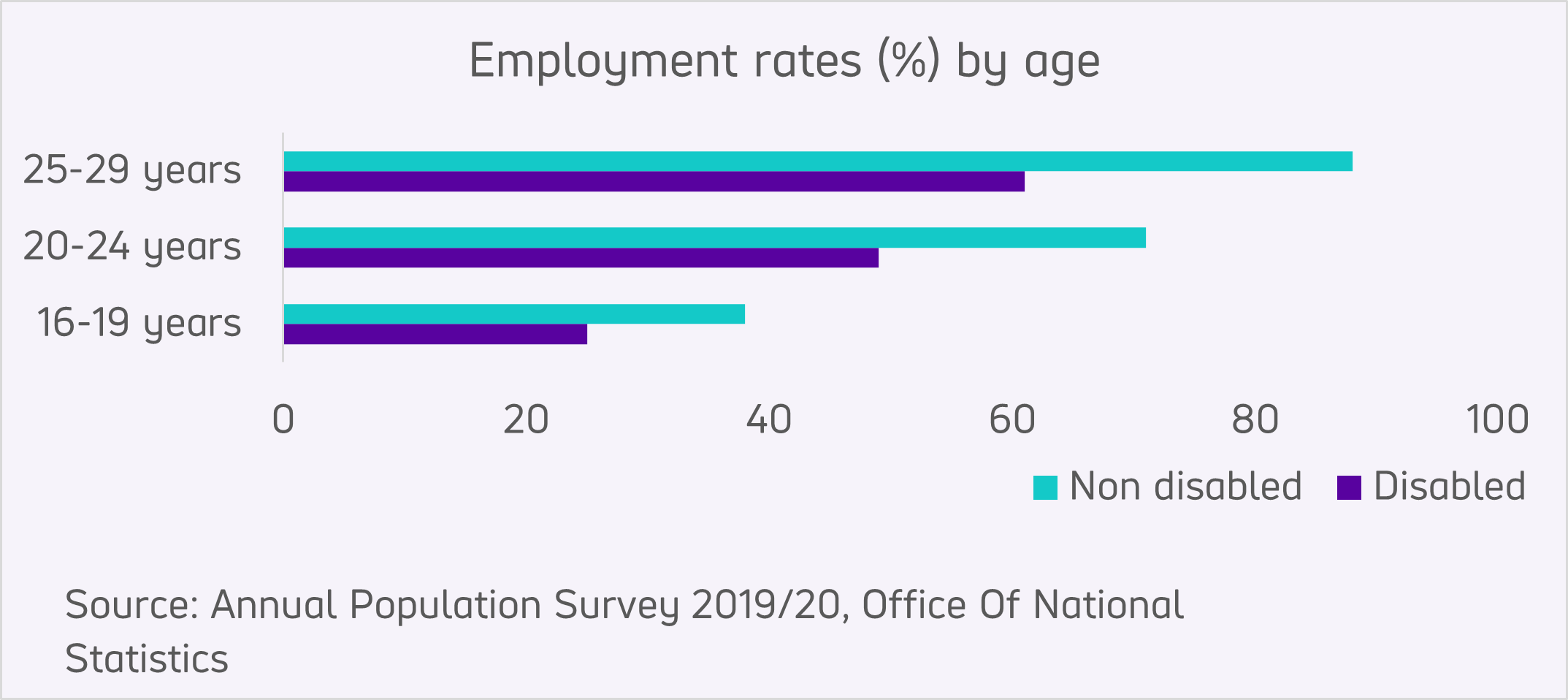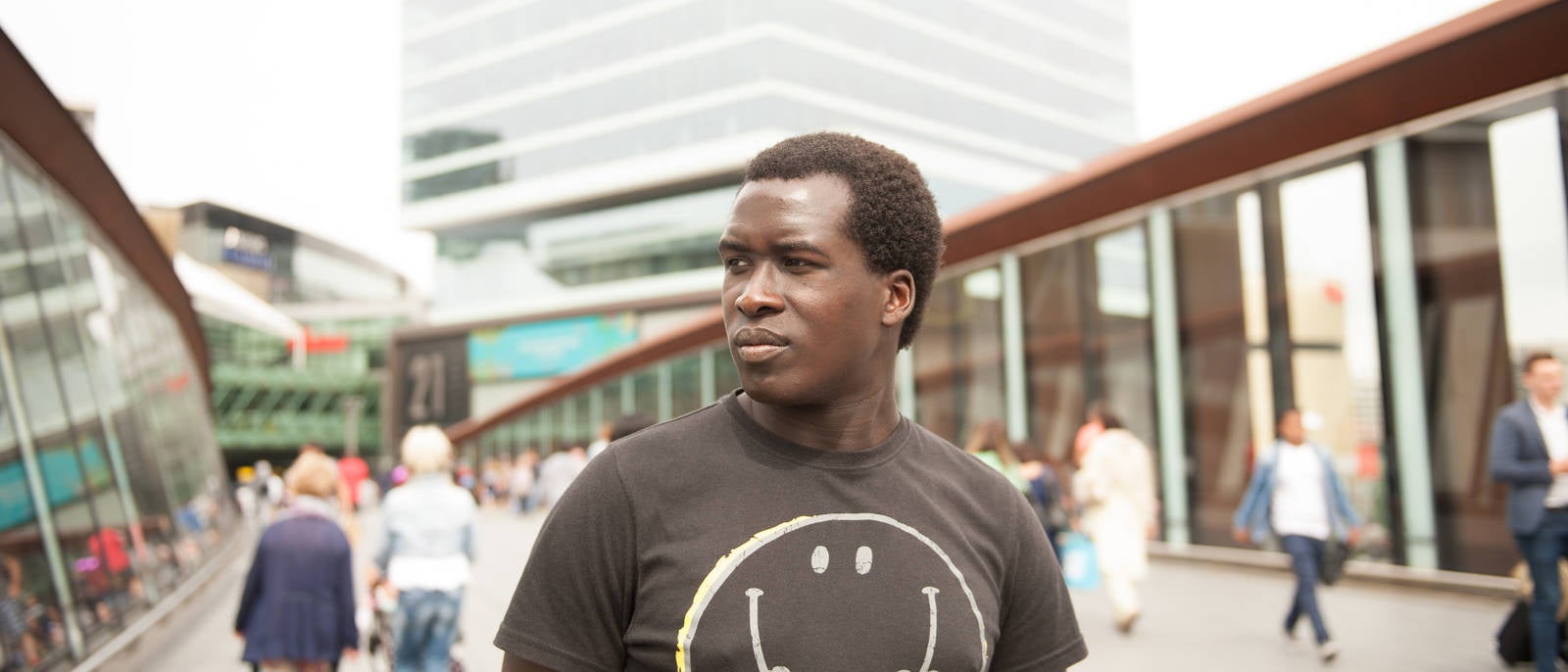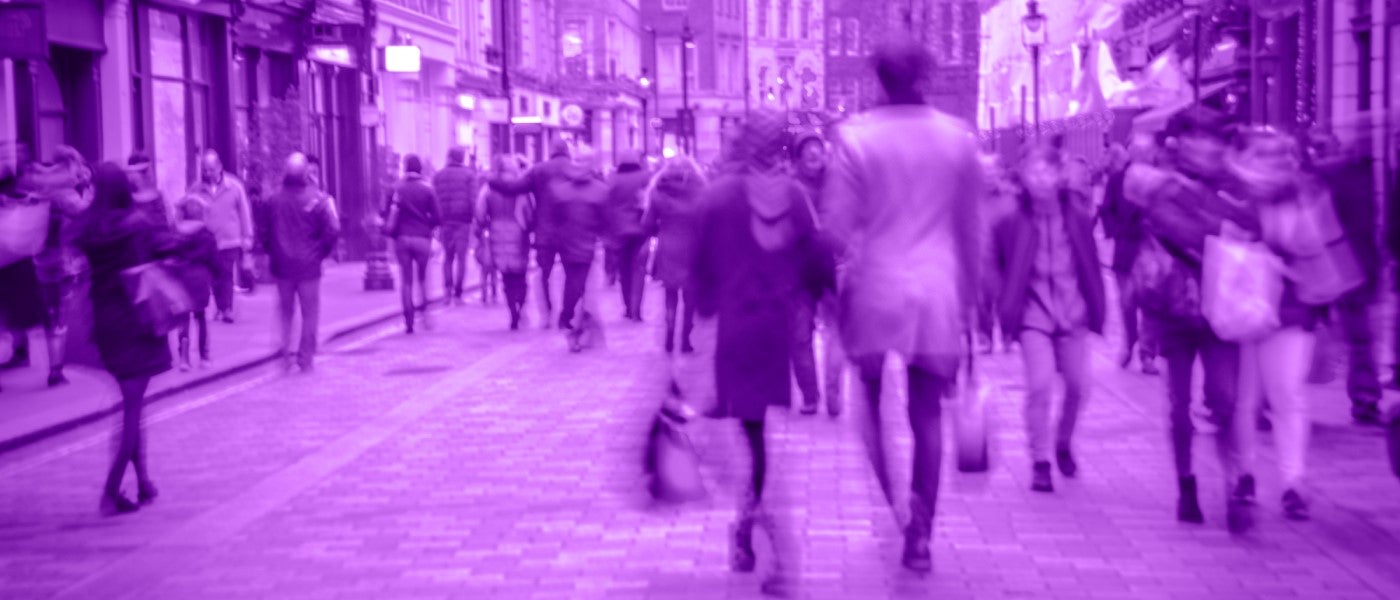- Home
- News and stories
- Following the lives of disabled young people.
Following the lives of disabled young people.
 7 August 2023
7 August 2023
We’ve released 2 reports about disabled young people in the ‘Our lives, our journey’ programme. Our research report is accompanied by a life journeys report exploring these young people’s experiences in more depth, 2 years after we first met them.
We cover the following themes:
- moving into independence and adulthood
- public attitudes
- choice and control in education
- employment
- financial security
A note from me
Having recently become a mum, I’ve been nurturing my own little person. One day she’ll find her own independence, and I wonder about the paths she’ll take as she eventually navigates her way into adulthood.
My work as a researcher is focused around disabled young people in ‘Our lives, our journey’ and the many challenges they face as they transition into adulthood.
There’s still plenty more to understand so that Scope can encourage change in society and remove these barriers. But ultimately, this research aims to identify areas in society that should have fairer opportunities for disabled young people when finding their own independence.
Barriers for disabled young people
Besides adjusting to the changes and responsibilities of adult life, disabled young people also face barriers in society, such as:
- restricted choice
- negative attitudes
- inequality
These are unnecessary added challenges for disabled young people who are trying to reach their life goals.
Georgia
I don't want to think, 'Oh, because of my disability, I can't do the things I want to do,' because I don't think that's fair.
Planning a future as a disabled young person often comes with uncertainty. Limitations on choice and control mean their goals and aspirations can be unpredictable.
Support in education and employment is integral for disabled young people to have equal opportunity with their peers. The inequalities in society unfortunately dictate life opportunities and achievement. Assumptions and attitudes from staff, employers and colleagues about the capability of disabled people can have a significant effect on disabled students and employees. Attainment, self-confidence and aspirations are all negatively impacted according to our research.
Independent living
Some disabled young people have stayed living with their family. This can enable them to be more independent.
Adam’s parents support him emotionally and financially which enables him to build his confidence working full-time.
But, for many young people independence is associated with being less reliant on their parent's support.
Adam
I've thought about it for quite a while, it's just, I want to have that independence, where you can go into your own flat, or house and just shut the door and go, 'This is my place.'
Moving out
Moving out of the family home is a transition many young people find challenging. Disabled young people have the additional challenges of finding accessible accommodation that is also affordable.
Jess
…when I was choosing where to live this year, I had to think about the position of my room, the stairs …in relation to the kitchen and the shower and stuff and try and make sure that I was on the same floor as much as possible.
Accommodation that is fully accessible and supports an individual’s needs costs much more to rent as consequence. Despite the cost, our research tells us that moving to a more accessible place results in a better quality of life for young disabled people.
Public attitudes
Many disabled young people reported negative public attitudes that were specific to this age group.
Martha
…Being a disabled young person, people love to tell you, and kind of, patronise you a lot… it always felt like I was either being patronised because I’m disabled, or patronised because I’m young and disabled.
For some disabled young people, their feelings of independence and confidence to go out and do things were damaged. This made them feel stressed and frustrated.
Younger disabled people are more likely to be affected by experiences of negative attitudes and behaviours. They are often questioned about being disabled and according to Scope’s attitude research, disabled young people are 3 times more likely to be accused of faking their condition than older disabled people.
They believed this was a lack of awareness and understanding about disability, so people would often make assumptions or stereotype them.
Georgia
The worst thing that I worry about all the time is people thinking that I’m putting it on. I will always have that in the back of my head, even if people aren’t thinking that.
Education
We learnt more about disabled young people applying for and going to university. They told us about their limited options for accessible places to study and lack of support around disability.
There have been some adjustments to teaching materials as a result the coronavirus pandemic. For example, universities introduced online lectures almost immediately.
Martha
…now I can just sit in the kitchen and watch the lectures. It's great. It's wonderful. I haven't got to worry about getting up and being anxious. …It's quite frustrating that it's only just happened now because I've asked for online access to lectures before and they said it's not possible.
This was unavailable to many students before lockdown which was frustrating for those students, cutting off an accessible way to learn.
One of our participants felt pushed out of university without the correct support before the pandemic and now reflects on how different their experience could have been.
Avery
I'm no longer at university because I was having issues attending, which is incredibly frustrating now everything's suddenly gone online for covid and, quite obviously, they could have gone online before.
Our research tells us that there are barriers in education such as unsupportive staff or not having the correct adjustments for lectures. Barriers in education slow disabled young people from finishing education and finding work.
Having appropriate support, and a good quality of education will put disabled young people in the best position for building confidence and a career.
Employment
Finding your first job is often a challenge for young people. Additional barriers for disabled young people make it even more challenging, such as lack of disability support in the workplace.
The difference in employment rates between disabled people and non-disabled people remain high. This ‘disability employment gap’ suggests that disabled people do not have equality in the workplace or jobs market. Employment rates are lowest for disabled young people compared to non-disabled young workers.

Some disabled young people have experienced unsupportive employers who show little awareness about disability. This led younger disabled employees to feel dissatisfied in their jobs.
We found that disabled young people with supportive employers feel secure and satisfied in their jobs. Having the appropriate support from employers is crucial for disabled people to find and stay in work.
Adam
All the staff that I work with…really support and understand [my] condition. They are always, you know, ‘if you need support, there is always someone there’.
Adam has expressed his loyalty to the company and his intention to stay with his employer long term.
Conclusions
As we prepare for the next wave of interviews, many disabled people have already been affected by the cost-of-living crisis. We’ll explore the impact this has had on their health and wellbeing, and how they can be supported. Concerns about paying for energy bills, leisure activities, travel, food essentials and affordable, accessible accommodation for young people are amplified as a disabled person.
Life costs more if you are disabled, so we want to understand how disabled people can be better supported. Disabled people should be able to live the life they choose, with the same equality in education and employment as non-disabled people.
This group of disabled young people show remarkable resilience, despite the barriers they face. They remain ambitious and are already achieving great things as they move into their own independent lives. It’s up to society to make opportunities more equal and break the barriers for all disabled people. We need to make a shift in attitudes throughout organisations, institutions and individuals across society.
A
We have the ghost of equality; if you don't look deeply, it looks like we have equality
About the 'Our lives, our journey' research study
Scope exists to support and work with all of these groups to achieve real change for disabled people. We believe that an equal society is a better society. One where all disabled people can flourish.
Watch this space as we begin to work on the next wave of disabled young people in ‘Our lives, our journey’, following their ever-changing life journeys.
Our disabled young people research is part of our wider longitudinal research, ‘Our lives, our journey’ (OLOJ).
This project has been following the lives of disabled people since 2018.
 7 August 2023
7 August 2023








